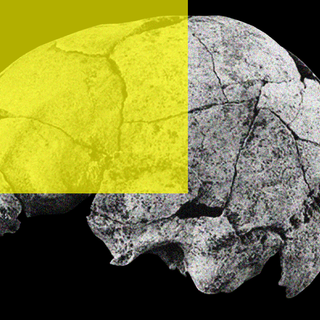What becomes of us after we die? No one knows yet. But some say we dissolve into nothingness; some believe the cycle of rebirth goes on; some think our destinations are determined based on our actions on the Earth. While scientists haven’t found an answer to what happens after death, they may have just chanced upon what happens while we’re dying.
Published in Frontiers in Aging Neuroscience, a new study suggests our brain might be playing back happy memories from our life while we transition into death. In other words, our life actually plays out before our eyes.
The research, however, wasn’t driven by the goal of finding out what happens as we die. Instead, a medical team was simply using continuous electroencephalography (a test to identify electrical activity in the brain) to detect seizures and treat an 87-year-old patient with epilepsy. During the process, however, the patient passed away from a heart attack. But he left his doctors with the recording of “the activity [in] a dying human brain for the first time ever,” as Neuroscience News reported.
“We measured 900 seconds of brain activity around the time of death and set a specific focus to investigate what happened in the 30 seconds before and after the heart stopped beating,” said Dr. Ajmal Zemmar, a neurosurgeon at the University of Louisville in the U.S., who co-authored the study. “Just before and after the heart stopped working… through generating oscillations involved in memory retrieval, the brain may be playing a last recall of important life events just before we die, similar to the ones reported in near-death experiences,” he added.
One might wonder: is that what a near-death experience feels like too? Perhaps. Numerous accounts of near-death experiences add on to theories about how our final moments may allow us to feel greater humanity, or induce some form of euphoria.
Related on The Swaddle:
Some ‘Zombie’ Brain Cells Actually Increase Activity, Grow After We Die: Study
While the current research may be the first-ever recording of a dying brain, it’s not nearly the first time scientists have tried to answer the (non-)existential question of how the process of dying plays out in the brain. A 2020 study, for instance, found that the dying brain responds to sounds — even if the person is unconscious and, obviously, not perceptibly reacting to stimuli. This study concluded that hearing is the last sense we lose in our journey beyond life.
A 2011 study, which also investigated the state of a dying brain, noted elevations in the levels of serotonin — a neurotransmitter associated with feelings of satisfaction, happiness, and optimism — in the brains of six dying rats. In fact, the levels of serotonin tripled when a rat was dying.
“[Descriptions of near-death experiences] are anecdotal reports, but there are a large number of them going back decades, and these testimonies suggest that something is going on,” says Dr. Sam Parnia, who was formerly at the Stony Brook University, and is credited with authoring one of the “world’s largest” studies examining near-death experiences. 46% of the study participants were actually about to recall their brush with death, and most people’s memories revolved around themes like bright white lights, or simply, their families.
“In our study, we had confirmed consciousness present for at least three to five minutes… It’s a paradox. The fact that you have people who can fully recall something, who appear to have full consciousness, when the brain is shut down, suggests that consciousness may be a separate entity from the brain,” Dr. Parnia added.
Unfortunately, we don’t have an answer to that yet — but, courtesy of the present study, we do know a few things.
“As a neurosurgeon, I deal with loss at times. It is indescribably difficult to deliver the news of death to distraught family members… Something we may learn from this research is: although our loved ones have their eyes closed and are ready to leave us to rest, their brains may be replaying some of the nicest moments they experienced in their lives,” Dr. Zenmar concluded.
A previous version of this article had incorrectly stated that Dr. Sam Parnia is still affiliated with Stony Brook University.




